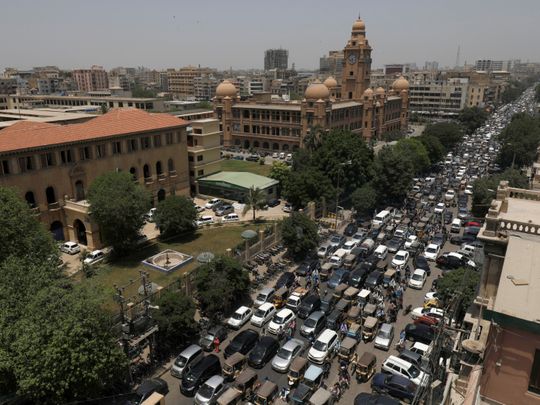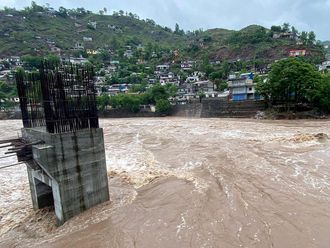
Islamabad: Petrol prices have surged to a record high in Pakistan on Wednesday, adding to the burden of households already hit by rising inflation and squeezed budgets.
Pakistan government has announced to increase the prices of all petroleum products for next fortnight ending on February 28 due to higher international oil prices. With an increase of Rs12.03, petrol will now be available for Rs159.86 and high-speed diesel at Rs154.15 with an increase of Rs9.53. Kerosene will be sold for Rs126.56 per litre after Rs10.08 rise while light diesel oil will now be available at Rs123.97 after Rs9.43 increase. The new costs were described as “the highest-ever prices” of petroleum products in the country.
The government clarified that the GST rate on all these products remains unchanged at zero. “To provide utmost relief to the consumers, the government levied zero per cent sales tax and reduced the petroleum levy rate against the budgeted targets,” the statement said. The finance division said the government was bearing a revenue loss of “around Rs35 billion (fortnightly)” to keep the petroleum levy and sales tax to the minimum.
Government facing pressure due to inflation
Prime Minister Imran Khan’s government is facing severe criticism from the masses and the opposition for higher fuel prices amid rising inflation but government officials claim that petroleum prices in Pakistan are still the cheapest in the region. Consumers have expressed concerns that higher fuel prices will lead to even higher inflation as the price of commodities continue to rise in Pakistan with the inflation rate recorded at 12.3 per cent in December 2021 - the highest in two years.
Government blames global surge in oil price
“The prices of petroleum products are showing drastic increase in the international market and presently are at the highest since 2014,” the Ministry of Finance said in its statement. Prime Minister Imran Khan earlier said that most of the oil importer countries such as Pakistan are feeling the impact of the rising global oil prices. Pakistan relies more than 80 per cent on the import of crude oil and petroleum products to meet its needs.
Experts also linked the spike in fuel prices in Pakistan to global oil prices that have surged to a seven-year high above $92 a barrel amid growing demand after the reopening of global economies and mounting worries about a Russian invasion of Ukraine.
“Petrol bomb”
The opposition members have strongly criticised the Imran Khan government following the fresh increase in petrol prices. Pakistan Muslim League-N (PML-N) President Shehbaz Sharif denounced the government for “exploding the oil bomb on the people” and accused the Pakistan Tehreek-e-Insaf (PTI) government of being “insensitive and heartless” to the sufferings of inflation-hit masses.
Pakistan Peoples Party (PPP) chairperson Bilawal Bhutto Zardari criticised the price spike and announced a long march planned on February 27 to hold the government accountable. Another PPP leader Naz Baloch warned the sharp increase of Rs 12 per litre would “directly affect the common man” and further increase inflation in the country.
Sirajul Haq, leader of Jamaat-e-Islami, said his party “will not remain silent on this brutality” and warned of a protest march towards Islamabad over inflation.











